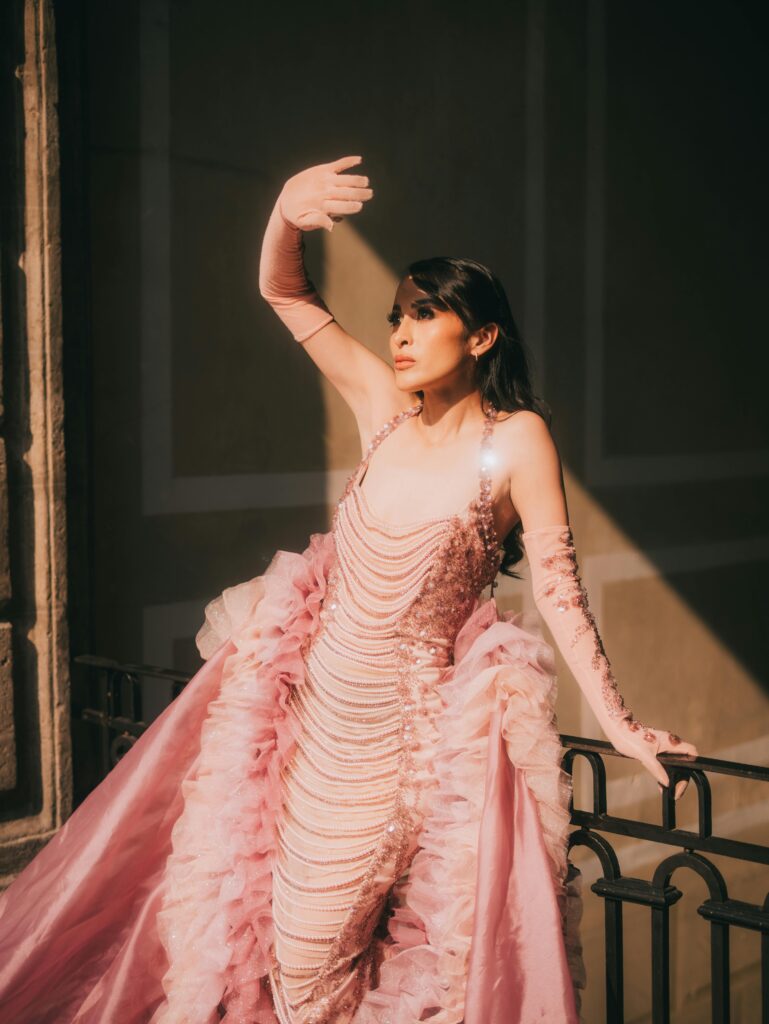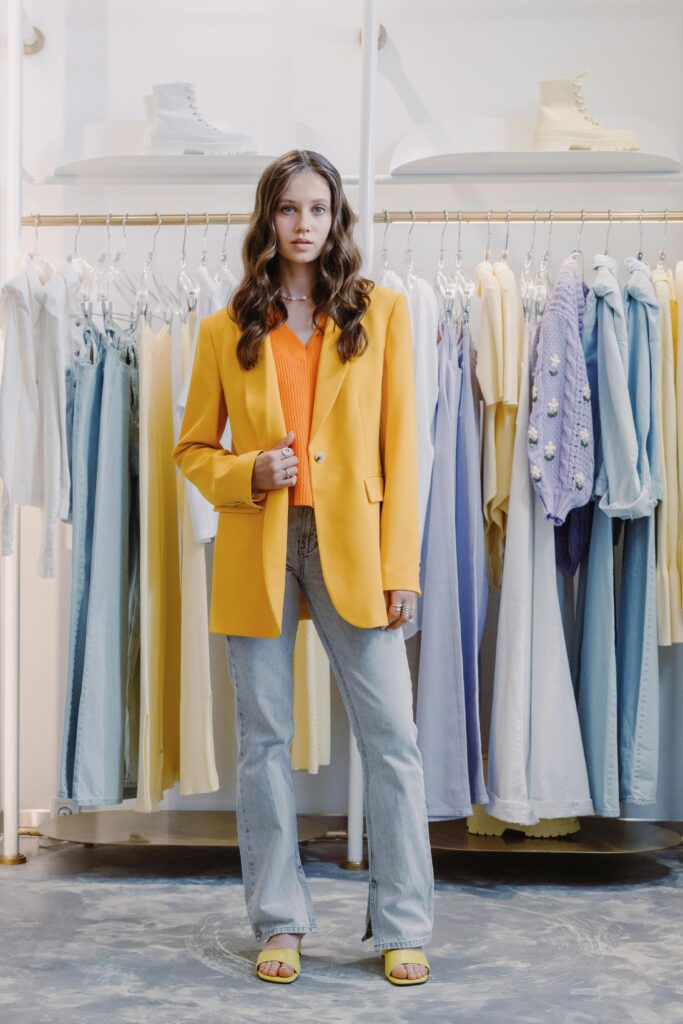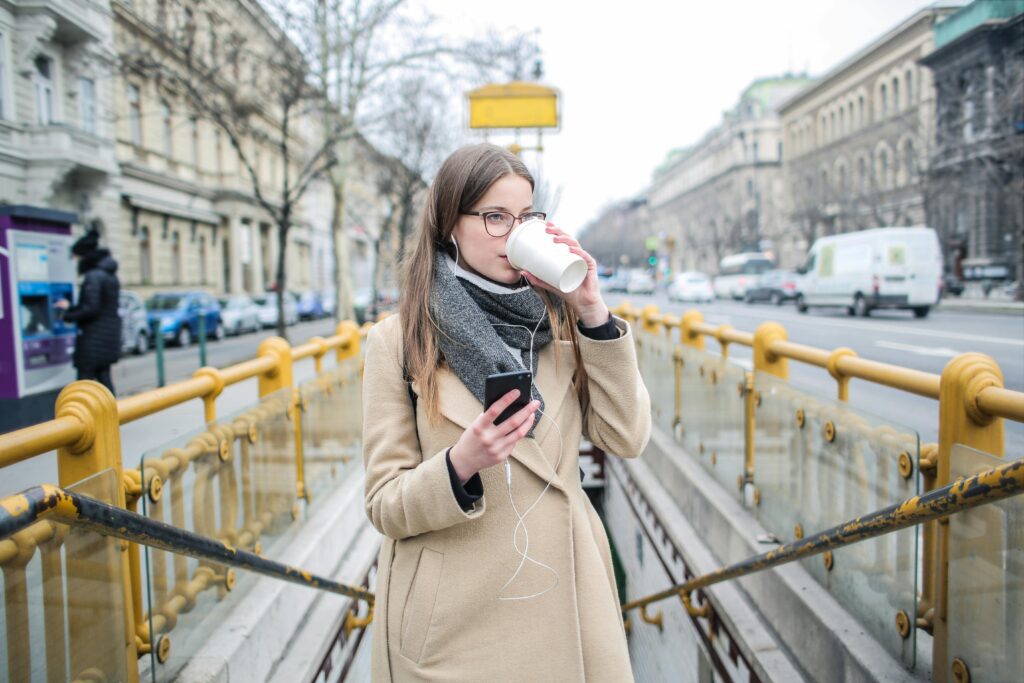Introduction
In the twenty-first-century city, Urban Minimalism has been a stealth revolution. It is not about austerity but about refinement—a deliberate search for quality, harmony, and mindfulness amidst the intensity of urban living.
The minimalist spirit has moved beyond white spaces and empty desks to shape architecture, fashion, travel, and even how individuals describe pleasure.
At its core is a passion for Exclusive Experiences—those uncommon, immersive experiences that replace meaning with materialism. The new luxury is not about accumulation anymore; it is about curation. A serene flat overlooking the cityscape, a capsule wardrobe that narrates one’s story, a quiet refuge hidden from algorithms—each reflects how Urban Minimalism converts simplicity into sophistication.
This article discusses seven singular experiences that define today’s fearless modern way of life: lifestyles that blend restraint with refinement, technology with mindfulness, and elegance with everyday authenticity.

Understanding Urban Minimalism in the Modern World
The Philosophy Behind Minimal Living in Cities
Minimalism, originally a response to industrial disarray, has evolved into a philosophy of intentional living. Urban minimalism means clarity: fewer, more expansive spaces; belongings that fulfill purpose and feeling; and rituals that heighten mental equilibrium over social spectacle.
In Tokyo design studios as well as Copenhagen, Urban Minimalism manifests itself in symmetrical proportions, muted neutral color schemes, and tactile integrity. The style resists the chaos of consumer culture and beckons calm into spaces where time and attention are limited resources.
Why Minimalism Is the New Form of Luxury
Luxury in the present is less about abundance and more about exclusivity of experience. The high-end of global cities spend on quiet penthouses, wellness retreats, and designer collaborations that resonate restraint over extravagance. This transition proves that genuine prestige lies in discernment—the sense to choose only what nourishes the senses.
Urban Minimalism takes everyday encounters—morning light filtering in from sheer curtains, the scent of new linen, the tea-making ritual—beyond words as a silent expression of refined taste. Thus, minimalism ceases to be the elimination of luxury but its purest expression.
The Psychology of Less — Finding Freedom in Simplicity
Psychologists refer to cognitive relief when environments are organized. Clutter disperses attention; spaciousness reorders attention. In the midst of congested urban environments, embracing Urban Minimalism is a mental detox, unshackling people from decision fatigue and affirming control in spaces that never stop.
Minimalism thus becomes an implicit emotional architecture—each cleared surface or thoughtfully selected object adds up to self-definition. It provides what most urban professionals yearn for most: serenity.
The Evolution of Exclusive Experiences
From Material Ownership to Experiential Meanings
Over the past ten years, wealthy consumers have moved from owning to doing. Designer handbags give way to personal art viewing experiences, and luxury cars to bespoke travel memories. There are stories that objects can’t tell in Exclusive Experiences.
For Urban Minimalism fans, this shift comes as no surprise. Experiences are not stored anywhere, but they leave deep fulfillment.
A Michelin-star tasting menu, a personalized perfume consultation, or an exclusive gallery tour—each resonates with the minimalist principle that less can mean more meaning.
The Rise of Experiential Luxury Among Urban Millennials
Millennial and Gen-Z professionals, who grew up in the midst of digital saturation, now prize authenticity over opulence. They opt for boutique rather than grand, craftsmanship rather than mass production. In the lexicon of Urban Minimalism, authenticity is the same as exclusivity.
Hotels create “silent breakfast” ideas, fashion brands stage atelier tours, and wellness brands provide sensory deprivation pods—all exclusive experiences centered on stillness, mindfulness, and presence. These experiences redefine consumption as contemplation, fulfilling a generation craving connection over spectacle.
How Exclusivity

Now Involves Mindfulness, Not Excess
Classic exclusivity loved limitation—limited series, gated communities, rarity. Modern exclusivity loves intention: who you decide to surround yourself with, what you decide to experience, how you decide to spend your time. In minimalist culture, mindfulness is the new rare thing.
Thus the compatibility between Urban Minimalism and Exclusive Experiences: both prioritize quality over quantity and mindfulness over show. Minimalist Home Design: Creating Spaces That Breathe
The Beauty of Clean Lines and Open Spaces
In Urban Minimalism’s architecture, space itself is a design element. Streamlined lines, empty corners, and plenty of natural light stem from the belief that there is beauty when nothing extraneous exists. Formerly decorated apartments in the city now speak of serenity in negative space—the art of doing less.
Living room with matte oak floors, sculptural lamp, and single vase of white lilies transmits greater calm than one abounding in frivolous trimmings. Here, the void is not lack—but possibility. It provides the city dweller with mental oxygen and visual cadence, rescuing concrete density as refuge.
Smart Design Trends for Compact City Apartments
Space limitation has led to innovative design. Fold-down desks, hidden storage, and functionally versatile furniture characterize contemporary city interiors. Designers find inspiration in Japanese and Scandinavian philosophies to combine efficiency with sophistication.
By such solutions, Urban Minimalism makes limited square footage a masterfully edited living space. A sliding partition can transform a studio into a two-zone dwelling; modular shelving maintains order without excess. The effect is both intimate and unshackled—evidence that sophistication is a matter of intention, not size.
Sustainable Materials for a Mindful Home
Aside from beauty, material honesty defines minimalist homes. Bamboo, terrazzo, recycled glass, and raw linen resonate with nature in urban confines. Such textures further affirm the symbiosis between minimalism and ecology.
To live simply is to live with a conscience. Every material selection speaks of craft and responsibility. Through this muted conversation, sustainability in itself is an elitist experience—a luxury that unites ethics with sophistication.
Conscious Fashion: Luxury in Simplicity
Capsule Wardrobe – The Key to Effortless Style
In the hectic pace of city life, style tends to reflect disarray. Urban Minimalism responds by inviting mindful curating: less clothing, greater synergy. The capsule wardrobe—a distilled set of adaptive staples—represents both simplicity and uniqueness.
A silk top that’s office-to-evening, a flawlessly fitted blazer, or a neutral-hued sneaker that’s meticulously crafted—these become the building blocks of self-expression. Through mindful decision, getting dressed is ritual, not habit.
Designer Brands Going Green
nternational fashion brands now redefine luxury as sustainability. The Row, Stella McCartney, and COS design classic silhouettes that fit any season. They abhor overproduction and admire craftsmanship, aligning with the Urban Minimalism ethos.
To contemporary consumers, these pieces are an elite experience—membership in a considered culture of design, not a frenzied trend. These pieces age well, building meaning instead of waste.

Quality Over Quantity: Fewer Pieces, Louder Language
The understated confidence of minimal style is in fabric, fit, and shape. When the quality is flawless, simplicity exudes strength. A monochromatic color scheme, free from distraction, magnifies personality instead of hiding it.
In this view, style is an expression of self-knowledge. The city minimalist doesn’t pursue novelty; they edit self. Their closet, like his apartment, speaks sophistication through silence.
Digital Detox Retreats: Breaking Free from City Clamor
Getting Back to Yourself in Quiet
In screenlit cities, quiet has become the most precious commodity. Urban Minimalism recognises this by turning luxury on its head: disconnection is luxury. Digital detox retreats—areaway cabins, retreat wellness lodges, or beachside retreats—beckon people to get their attention back through quiet.
There, phones lie in wood cases, and mornings dawdle to the beat of sunlight rather than beeps. The deprivation of virtual noise is the ultimate elite experience, reserved for those who prioritize presence over capability.
Secret Luxury Retreats That Foster Mindfulness
From the misty hills of Bhutan to the coastal minimalism of the Amalfi, resorts now design experiences that celebrate solitude. Interiors echo simplicity: organic linens, stone textures, and panoramic views unspoiled by distraction.
Guests meditate by dawn, write letters instead of emails, and dine slowly. Each moment feels deliberate. These spaces exemplify Urban Minimalism not only through design but through mindset—proof that the greatest indulgence is inner peace.
Balancing Tech and Peace in a Digital World
Urban professionals can’t disconnect from technology permanently, but balance can be achieved. Adding minimalist digital habits—planned screen-free time, curated social feed, or analog pastimes—instills boundaries to connectivity.Fine Dining with a Minimalist Twist
Gourmet Experiences That Celebrate Simplicity
In the kitchen, excess once equated to prestige. Complicated tasting menus, complicated plating, and luxurious ingredients were the badges of opulence. Nowadays, though, Urban Minimalism has invaded the kitchen and turned the art of gastronomy into an art of restraint.
The minimal dining experience is not about lack—it’s about simplicity. Less on the plate means every flavor can tell its truth. A mere heirloom tomato, lightly grilled and served with hand-built burrata, provides the same satisfaction once given to great feasts. Sophistication comes from precision and authenticity.
Contemporary restaurants built on this philosophy—Narisawa in Tokyo or Blue Hill at Stone Barns in New York—prioritize locality, seasonality, and presentation that borders on the meditative. These are luxury experiences, with the palate given to taste intention, not excess.
The Art of Minimal Plating and Pure Ingredients
Minimal plating is akin to visual poetry. Every sauce stroke, every garnish, has a purpose. Chefs espousing Urban Minimalism eschew superfluous complexity; rather, they strive for color harmony, texture harmony, and temperature harmony.
Local, unadorned ingredients become the stars. The focus turns from culinary drama to sensory equilibrium. In this school of thought, dining becomes mindfulness: taste becomes an exercise in freshness, sustainability, and shape.

Signature Restaurants Mastering the Less-Is-More Approach
From global capitals worldwide, high-end hotels are embracing this minimalist luxury. Scandinavian restaurants, Japanese Kaiseki masters, and Mediterranean farm-to-table chefs all subscribe to an aesthetic of deliberate simplicity.5
Smart Living Spaces: Redefining Modern Comfort
Integrating Technology into Minimalist Design
In the city, technology has matured from novelty to necessity. The real genius of Urban Minimalism is in bringing innovation into harmony so perfectly that it becomes part of the fabric. Smart lighting, voice-activated appliances, and climate-sensitive architecture marry comfort with simplicity.
These innovations unclutter life instead of cluttering it. Today’s minimalist house no longer displays appliances—it devours them. A wall-hung screen also serves as artwork; an unobtrusive speaker fills spaces with ambient tranquility. In all this, luxury is convenience without invasion.
Intelligent Interiors for the Conscious Homeowner
The modern minimalist home is an ecosystem in residence. Sensors shift lighting to natural cycles; furniture folds, slides, and extends by use. Designers such as Naoto Fukasawa and companies such as Muji or Apple embody this understanding of balance between design and restraint.
Lifestyle in such an environment becomes a privilege—one characterized by control, simplicity, and serene opulence. In place of unnecessary furniture, precision is employed. In place of ornament, intent. The look is not chilly but thoughtful, a testimony to the occupant’s mental discipline.
The Future of Urban Living: Simplicity Through Innovation
Cities of tomorrow are constructed on minimalist principles—lean energy, prefabricated homes, and digital balance. Smart grids and green materials make sustainability sophisticated.
With rising environmental consciousness blending with design, Urban Minimalism is no longer a trend but an architect’s guide to modern civilization. All innovation that streamlines and makes life lovely is part of this changing philosophy.
Curated Travel: Find Experiences That Transform
Personalized Travel — Luxury That Tells Your Story
Passport stamps are a thing of the past. The new traveler isn’t looking for numbers, but for narrative. Urban Minimalism has influenced the growth of curated travel where personalization trumps extravagance.
In place of lavish resorts, the discerning traveler now selects boutique accommodations and meaning-driven itineraries—a day in a Kyoto potter’s studio, or a personal dinner under Scandinavian aurora. These are discrete experiences that are authentic and reflective.
Luxury now whispers. It is the sound of waves breaking from an eco-villa, the aroma of cedar wood in a handmade sauna, the peacefulness of areas untroubled by tourist hordes. Every instant crafted, not devoured.
Sustainable and Mindful Tourism
The Minimalist traveler respects conservation over ownership. Ecological travel goes hand in hand with Urban Minimalism—travel lightly, reside mindfully, depart gently. Carbon-free lodgings, locally prepared food, and cultural sensitivity are the hallmarks of this novel elite trend.
Sustainability is now the passport of prestige. The more limited the experience, the lighter it touches the world. With this marriage of ethics and refinement, travel becomes a gesture of thanks and not one of conquest.
Exclusive Experiences Beyond the Typical Destinations
Minimalism loves the unseen. Off-the-beaten-path islands, desert observatories, cabinmountain retreats—all provide what the contemporary soul desires: silence. For the traveler who abides by Urban Minimalism, exclusivity is not in gold but in quiet.Mindful Luxury: The True Essence of Urban Minimalism
Emotional Wellness as the New Luxury Currency
In past times, prestige was quantified in material display; now it is quantified in composure
. The calm person—composed, self-contained, rich inwardly—represents the new aristocracy of feeling. In this transition, Urban Minimalism construes luxury as harmony between environment and soul.
Wellness studios, meditation rooms, and aromatherapy libraries are now the unspoken icons of wealth. To live serenely in a hectic city is the ultimate luxury. Such spaces make quietness a luxury that few can afford, one where mental focus and cultural sophistication meet.
Even in the smallest apartment, ritual moments yield sanctuary. A cup of deliberately brewed matcha, a dousing candle at the evening hour, or a few minutes of calculated breathing—all resonate minimalist elegance. These acts substitute the glamour of the excess for intimacy.
By conscious routine, Urban Minimalism transmutes mundane evenings into meditations on presence. The minimalist discovers depth not through new things but through heightened awareness of the familiar.
The Convergence of Spirit and Sophistication
Mindful luxury combines spiritual awareness with design accuracy. Former monasteries converted into wellness retreats, former temples converted into art spaces, and studios that vibrate to sound baths are just some examples of how holiness becomes a part of contemporary looks.
Here, bespoke experiences are designed for contemplation not display—a confluence of loveliness and the divine.
Urban Minimalism in Daily Life
Simplifying Your Digital Space
Digital life shapes the urban identity, but clutter tags along into screens. Urban Minimalists declutter not just spaces but also devices—streamlining folders, silencing notifications, and substituting unending scrolling with purposeful connection.
The effect is intangible elegance: less distraction, more clarity. This silent discipline reclaims the luxury of single-minded attention, a solitary pleasure in a fractured era.
Decluttering Routines and Mental Calm
Minimalism also applies to time. Rigorous mornings, short mindful breaks, and scheduled solitude provide rhythm to days that could otherwise disintegrate into hurry. By streamlining rituals—selecting a single fragrance, a single playlist, a single priority—the person builds emotional architecture.
This calmness, achieved in the midst of urban commotion, is Urban Minimalism practiced as philosophy.
Selecting Quality Experiences Each Day
Not all indulgences have to be large. A stroll around an art gallery during lunch, a podcast that feeds the mind, or a device-free meal shared with friends—all are everyday exclusive experiences. These small indulgences add up to a life of heightened sophistication, showing how elegance can exist in simple things.
The Art of Living Boldly Yet Minimally
Confidence Through Intentional Living
Boldness in the minimalist style does not yell; it vibrates. The Urban Minimalist claims uniqueness by choosing carefully—only that which serves purpose, only that which contributes clarity, only that which enlarges vision.
This confidence is the result of discernment, the knowledge that meaning intensifies as options constrict.

Articulating Individuality Without Excess
Architecture, fashion, and habit become muted self-portraits. The line of a coat, the configuration of a living room, or the play list that fills a night—all speak identity through reserve. In Urban Minimalism, style is storytelling with less noise.
Individuality burns brightest when set against serene structure.
How Boldness Prospers within Simplicity
Ironically, restraint is what makes impact swell. The sleek lines of an architectural high-rise, the silence in a piece of music, the empty space on a gallery wall—each is evidence that power resides in restraint.
Similarly, minimalist living gives permission to refuse: to trends, to junk, to unnecessary sophistication. This judicious rebellion is the essence of the new bold.
Future of Urban Minimalism: Where Luxury Meets Sustainability
The Shift Toward Conscious Consumption
Society’s concept of success shifts. As global urgency intensifies, sustainable design is the highest form of affluence. Ethical sourcing, energy efficiency, and recycling fashion are now alongside art and architecture as markers of good taste.
Within this cultural shift, Urban Minimalism is no longer a style—it’s an ethical and ecological position.
Smart Cities and Eco-Living Innovations
Urban designers imagine environments in which technology enables ecology: green walls, renewable energy cladding, water-harvesting roofs. These smart ecosystems represent minimalist efficiency at the civic level.
For occupants, living within such environments is an elitist experience, combining convenience with conscience.
The New Definition of Luxury in 2030
By the following decade, luxury will be quantified by time, tranquility, and privacy. The still apartment with passive ventilation, the electric car parked under solar panels, the wardrobe that endures seasons rather than weeks—these will constitute prestige.
Urban Minimalism will lead this development, demonstrating that responsibility and refinement are not antonyms but allies in creating a habitable future.
Conclusion: Redefining Modern Luxury Through Simplicity
As this tour of Urban Minimalism demonstrates, real sophistication is curation—of space, of mind, of experience. In architecture, fashion, travel, and technology, the minimalist ideal has transformed luxury from showing off to knowing.
The seven unique experiences outlined here—breathing homes, enduring wardrobes, restore retreats, and simplifying innovations—compose the lexicon of a fearless contemporary way of life. As a group, they instruct that elegance is not the accumulation of more but the proficiency of enough.
In the urban pacelessness, Urban Minimalism sings the new luxury anthem: clarity, consciousness, and tranquility. The most desirable luxuries today are those that shield one’s attention from distractions.
